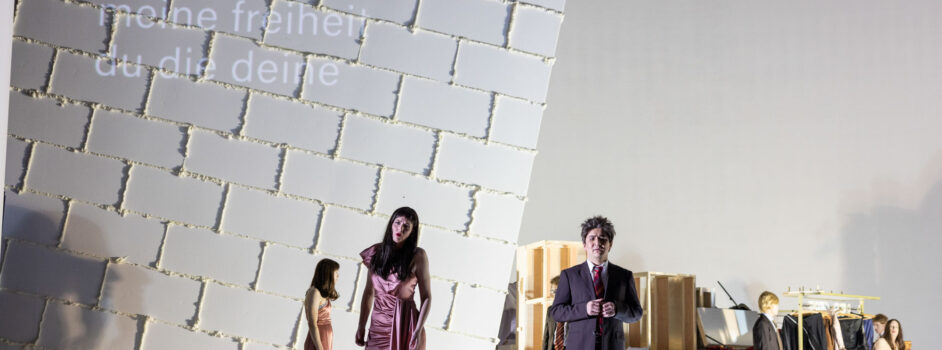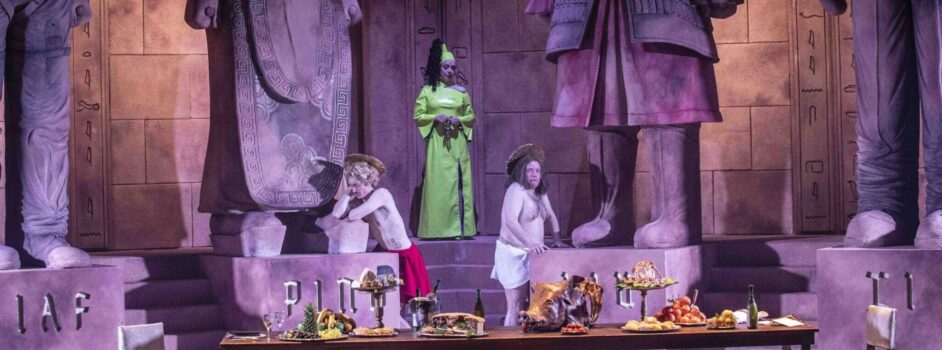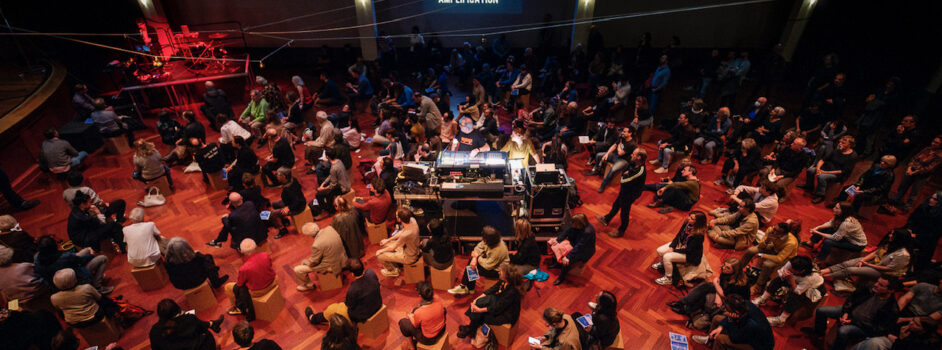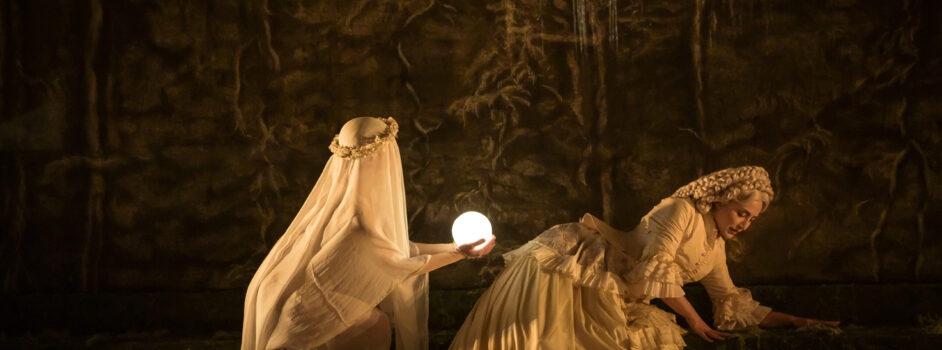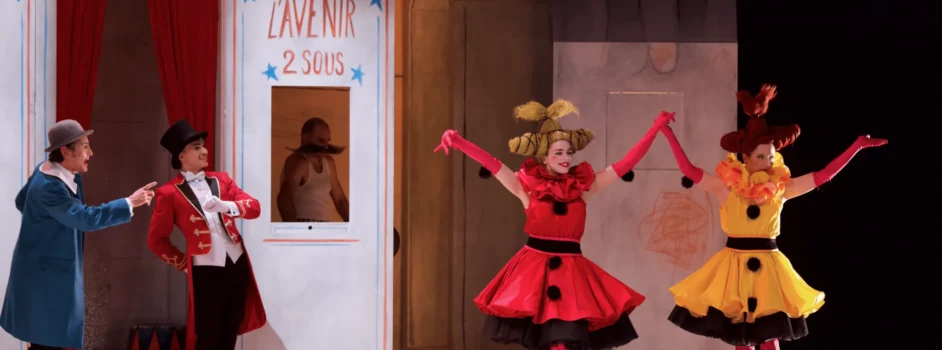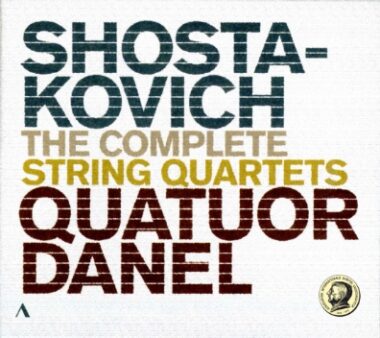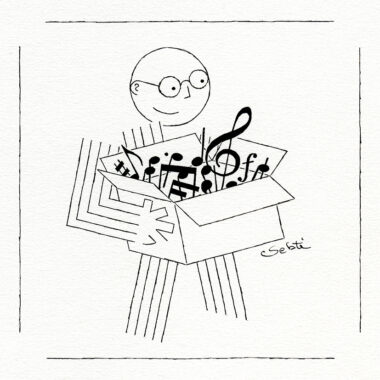Plus de détails
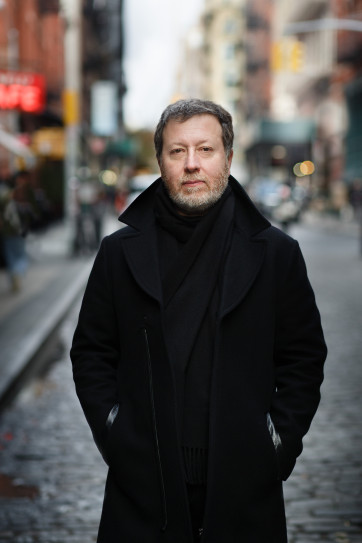 He is one of the leading conductors of modern music in the world. He premiered a huge ensemble of pieces from Helmut Lachenmann, to Steve Reich, Régis Campo or Hilda Paredes. Before his parisian concert of June 7th conducting the Orchestre Philharmonique de Radio-France at the Ircam's Festival Manifeste (in a Bedrossian, Varèse and Xenakis' program), the american conductor Brad Lubman answers a few questions.
He is one of the leading conductors of modern music in the world. He premiered a huge ensemble of pieces from Helmut Lachenmann, to Steve Reich, Régis Campo or Hilda Paredes. Before his parisian concert of June 7th conducting the Orchestre Philharmonique de Radio-France at the Ircam's Festival Manifeste (in a Bedrossian, Varèse and Xenakis' program), the american conductor Brad Lubman answers a few questions.
« Always give things a chance. »
ResMusica : How do you discover your special « taste » for contemporary works ?
Brad Lubman : I have always had a fascination with, and love of, many modern things in all the arts. It's just something that's always been with me, even since I was very young. I remember always liking things that were (in the late 1960s and early 1970s) modern : art, architecture, furniture and design. So even though my love of classical music and my training and background in conducting was first via the music of Mahler, Beethoven, Brahms, Debussy, Ravel, and Stravinsky (to name just a few examples), I always have had a special interest in all things modern. I would like to point out that not all contemporary music appealed to me at first, when I was younger. In some cases I needed to come back to them some years later, giving some works a chance, sometimes over the course of 20 years ! This is what I always recommend to listeners who might not have an immediate taste for contemporary works : always give things a chance, perhaps every few years try to go back to certain pieces or certain composers, and sometimes you'll discover you have a newly found appreciation.
RM : You are conducting works from all composers and all esthetics, but you have some special connexions with some of them, especially Steve Reich. How was your first meeting with Reich ?
BL : My first meeting with Reich was in 1995. Bang on a Can had started a chamber orchestra (which was called SPIT) and asked me to be the conductor. They invited Reich to the first concert. Afterwards he wanted to meet me. He said he was very impressed with my conducting and possibly might have something for me to conduct in the future. The next morning he phoned me and asked if I would like to conduct the New York premiere of City Life with his ensemble the following year, and from that point came the recording of City Life on Nonesuch, and many other projects since then.
RM : What skills to be a good conductor in contemporary music ?
BL : One needs to build a set of skills starting with traditional repertoire (baroque, classical, romantic, and early 20th century repertoire). In conducting music from any given era, there is a long list of skills that one needs to develop. The very basis of these skills is the ability to beat time accurately, clearly, and musically. While developing that technique, one must sharpen one's aural skills to be able to hear as much detail as possible, to be able to hear while conducting with the accuracy and clarity one needs when producing a recording. Of course there are many other skills needed in the area of phrasing, textural balance, sound-color, dramatic and stylistic considerations, etc. For contemporary music, you need all of the above, plus the ability to conduct mixed meters, understand and be able to demonstrate complex rhythms and polyrhythms, the ability to hear and understand complex sound structures (anything from polytonal harmonies to 12-tone harmonies, elements of electronics, extended techniques, microtones, etc). Most important is the ability to rehearse in such a way that an ensemble or orchestra can play to the best of their abilities, to their highest level of accuracy and artistry, but at the same time have a feeling that whatever contemporary piece they are playing is as familiar as any piece of traditional repertoire.
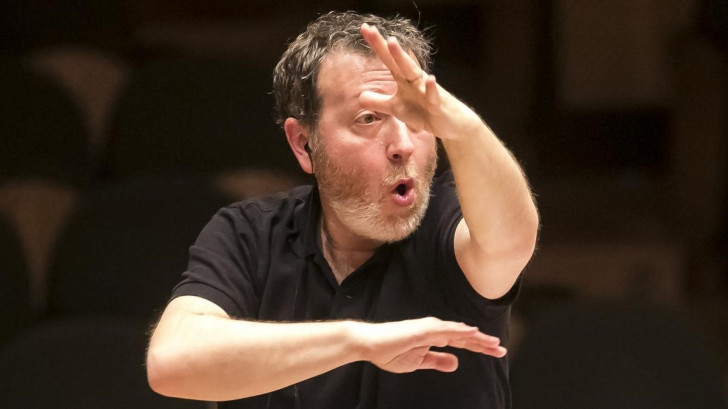 RM : Could you talk a little about Twist, the Bedrossian's french premiere that you'll conduct at the Philharmonie de Paris on June 7th ?
RM : Could you talk a little about Twist, the Bedrossian's french premiere that you'll conduct at the Philharmonie de Paris on June 7th ?
BL : Twist transforms the orchestra into a completely different entity, filled with unexpected sounds, situations and provocative encounters. It offers a world filled with both enticing confrontation and rewarding contemplation. One aspect I find very interesting is the use of electronics and that the orchestra is sometimes “channeled through” certain electronic effects, thereby transforming the overall sound in unexpected ways.
RM : And could you also talk about the rare Lichens by Xenakis that you'll also conduct on this concert ?
BL : Sometimes there's nothing quite as invigorating and enjoyable as Xenakis setting 96 musicians into motion, with extremes of many types, and nice loud drum solos !
I had the pleasure to conduct Lichens a few years ago and felt that it's a piece that should enter the orchestral repertoire ! There are several Xenakis pieces that really should already be part of the orchestral repertoire. Another one is Keqrops for piano and orchestra and Dox-Orkh for violin and orchestra. There are elements in these works which are similar to things found in Stravinsky's Le Sacre du Printemps, therefore not as complex as one might think when hearing the name Xenakis. But then again, I feel there are many works by several composers which should be part of the orchestral repertoire. I've noticed in the past 15 years or so, certain works that were once rare to see on orchestral programs now starting to appear more and more frequently (which is very nice to see). Among them are Berio's Sinfonia, Messiaen's Turangalîla-Symphonie, and Varèse's Amériques. Therefore it seems time for one or two Xenakis pieces to start appearing on orchestral programs more often !
RM : What kind of advice could you give to a person who know nothing about contemporary music ?
BL : Come with no expectations other than an open mind and a sense of fascination for unexplored or unexpected territory !
Copyright : © Peter Serling ; © Joan Puig

